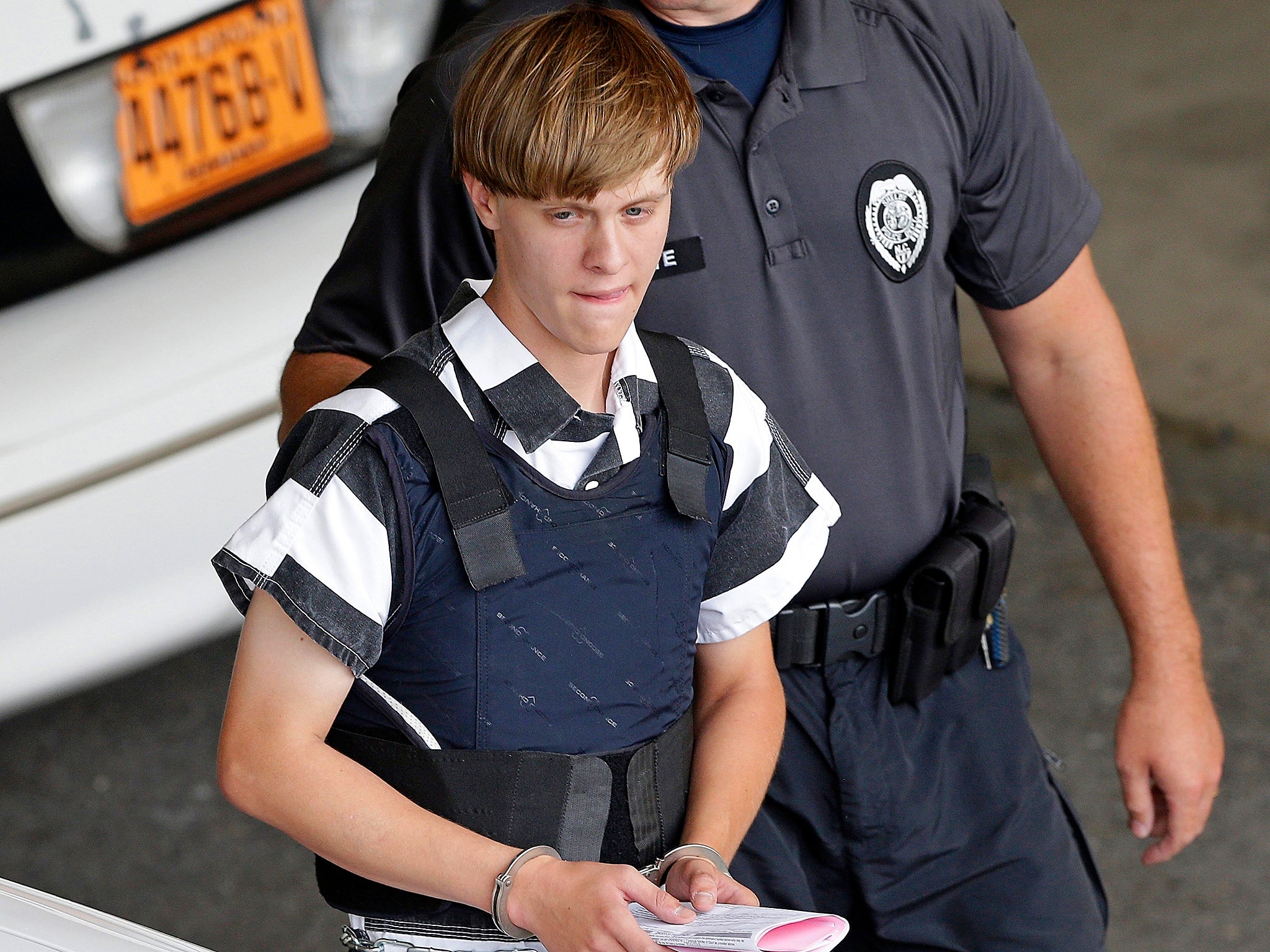The Independent's journalism is supported by our readers. When you purchase through links on our site, we may earn commission.
Monsters like Dylann Roof have reformed and contributed to society from prison in the past – the death penalty makes no sense
Killers from gangs have turned round their lives and written books urging young black men not to involve themselves in gang culture, while other convicted murderers have studied PhDs, apologised to their victims and become priests


Your support helps us to tell the story
From reproductive rights to climate change to Big Tech, The Independent is on the ground when the story is developing. Whether it's investigating the financials of Elon Musk's pro-Trump PAC or producing our latest documentary, 'The A Word', which shines a light on the American women fighting for reproductive rights, we know how important it is to parse out the facts from the messaging.
At such a critical moment in US history, we need reporters on the ground. Your donation allows us to keep sending journalists to speak to both sides of the story.
The Independent is trusted by Americans across the entire political spectrum. And unlike many other quality news outlets, we choose not to lock Americans out of our reporting and analysis with paywalls. We believe quality journalism should be available to everyone, paid for by those who can afford it.
Your support makes all the difference.Stanley Williams III, known to many as “Tookie”, was a notorious career criminal. A founding member of the West Side Crips gang in Los Angeles, from 1971 he embarked on an eight-year rampage of brutality, culminating in his conviction for the murders of four men in 1979. Once incarcerated, he assaulted other inmates and guards, and spent six years in solitary confinement.
Yet somewhere along the line, something changed in Tookie Williams. He renounced his past, and his life of violence. He became a voice against gang culture and the crippling effect it was having on American youth, especially on young black boys. He became a distinguished author on the subject, publishing twelve volumes.
In 2005, he was executed by the State of California by lethal injection.
Whether or not Tookie Williams really was reformed was questioned by the state as a reason for not granting him clemency. Yet he is not the only example of convicted criminals rehabilitating themselves, having once seemed completely beyond redemption. Take the case of mass killer Clayton Fountain, who became a priest, or Auckland murderer Paul Wood, who become one of several prisoners to earn a PhD while behind bars.
It seems such a shame that a country which counts itself as one of the most civilised in the world would put to death a human being – any human being – who retained the capacity to turn their lives around for good, even with no chance of release from prison. It does happen, even to the most hardened and seemingly callous of men.
Which brings us to Dylann Roof.
As mass shootings go, there was something particularly shocking about Roof’s crimes. To walk into a church and be welcomed by the congregation, to sit with them while they prayed, and then to shoot them, repeatedly, at close range, as their meeting entered what was for them was its most sacred moment, is incomprehensible for most people. To have done it because those innocent victims happened to be black makes it even more incomprehensible. It’s not hard to see why America might be clamouring for him to be executed.
Yet I hope he isn’t.
While Roof has appeared emotionless and unapologetic, his actions were met with an outpouring of emotion – overwhelmingly grief, of course, but also, remarkably, forgiveness. During his trial, we witnessed as a relative of one of his victims professed her forgiveness to him over and over through her sobs. Throughout the trial, indeed, no relative of any of the victims ever asked for the death penalty. It would have been understandable had they done so, and they were entitled to do so – but no one did.
Such grace, even in the face of such reckless hatred, was praised by Barack Obama, in what has become one of the iconic moments of his presidency, when he sang the first verse of the hymn Amazing Grace at a funeral for the victims.
It is forgiveness, and the chance to start again and find redemption, which is at the heart of the Christian faith, along with the understanding that vengeance – which is what the death penalty is – is reserved for the wrath of God alone. Forgiveness, though, has sadly become a rarity, and vengeance, both from the state and individuals, is all the rage.
Yes, Dylann Roof is a vile creature whose crimes are abhorrent. Even so, his victims and those closest to them have forgiven him, and though many would love to see him die, there would probably be no greater outcome for the families than the chance for this person to come to an understanding of how wicked his acts really were, and to ultimately feel remorse.
Keeping someone incarcerated for the rest of their lives is expensive, and allows murderers to live lives that their victims were so cruelly denied. But we cannot consider society truly forward-facing if, instead of punishment and rehabilitation, justice systems are based on taking revenge against citizens.
The final line of Amazing Grace – “I once was lost, but now am found; was blind but now I see” – is pertinent here. Dylann Roof was blinded by rage and hate. The US should afford him – even him – the chance and grace to see.
Join our commenting forum
Join thought-provoking conversations, follow other Independent readers and see their replies
Comments